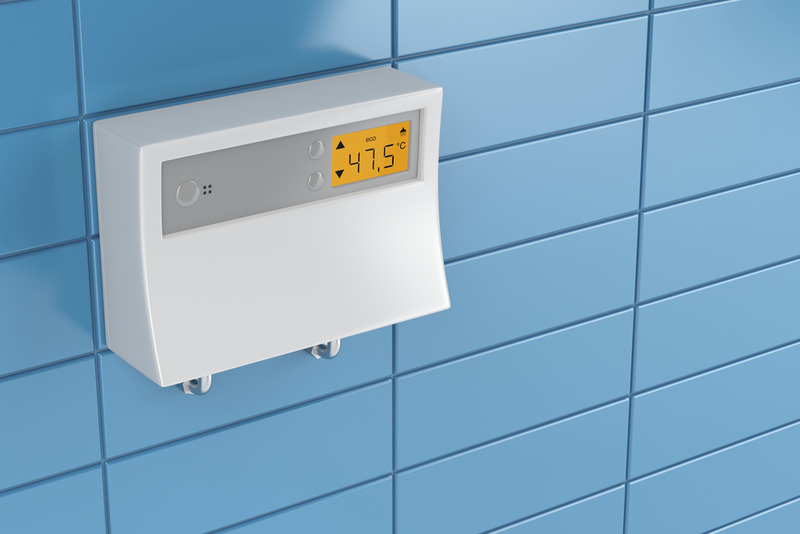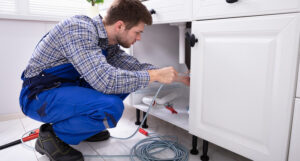A tankless water heater is also known as an instantaneous or on-demand water heater. These are water heaters that heat water at the moment, allowing it to flow through the system directly. As the name suggests, there is no tank for water storage after heating. They are energy efficient, considering no heat energy is lost due to the storage of water. Tankless water heaters use copper heat exchangers because of their excellent thermal conductivity and are easily manufactured. These types of heaters are pricy in the market but come with advantages. Here are a few things you need to know before installing a tankless water heater.
How Do Tankless Water Heaters Operate?
This heater warms water without the need to store it after. In a household, once you turn your faucet on, the water travels to the heating unit first. Depending on which fuel you use, the water is heated by the elements. The heated water goes back to the tap, and you get hot water. This element of instantaneous water heating is convenient. You do not have to wait for the water to be heated in limited amounts for your use.
A tankless water heater can heat up to 15 liters of water per minute in full function. However, the type of fuel makes the heaters differ in heating rates. Heaters that use gas can heat water faster than the electric-powered ones.
The downside of both types of tankless heaters is extensive use can stretch them out. This is cases whereby hot water supply is for a sizeable household. Say, if one person is using the washing machine and another the shower, the system may be strained to its limits. It is advisable then to install different heating units in your household to avoid this. You can fix a heating unit for every appliance that requires a lot of water during use. These include dishwashers, washing machines, showers and tubs, and solar water heating systems.
Advantages of Tankless Heater

Energy Efficiency
This is the most significant advantage of installing a tankless heater. Unlike the ones with tanks, energy does not require usage continuously to ensure hot water supply. Also, the loss of energy resulting from the storage of water in reservoirs is absent. You need to turn on the water supply you need and water heats immediately. Overall, depending on water usage, tankless heaters are more efficient than traditional ones by up to 50%. Installing a unit on every outlet makes the system more efficient too.
Constant Hot Water Supply
As long as there is the power to heat the water, anytime you need it, you can be assured of availability. To ensure that the system can keep up with your needs, ensure that many outlets are not on at the same time. It helps maintain your usage below the maximum flow rate of the system. With tanks, after a certain period, you will need the water to heat up for a while hence wasting time.
Reduced System Malfunctions
Faults that come along with traditional heating systems are extensive. Over time, due to water storage, there is mineral build up in the system. This causes corrosion within the system and may lead to parts leaking or wearing out. Tankless systems also have issues that may lead to leakage. They are, however, less severe than in tank-style systems.
Another issue that you can avoid is the bursting of the tank and pipes. Tanks are at risk of exploding if the temperature and pressure relief valve dysfunctions. Since the tankless system lacks this, the risk is an impossibility.
Minimal Exposure to Toxic Metals and Burns
Toxic metals arise from the corrosion of the insides of the tanks. For this reason, even bacteria breeding may occur inside the tank and may cause infections. Burns may result due to the lack of more accurate temperature control. These are problems that are at a minimal when it comes to tankless water heaters hence, safer for use.
Space Preservation
Tankless systems need minimal space for installation, unlike their counterparts. Even with limited space, you do not need to expand your living quarters to accommodate them. Tank-style heaters need a lot of space since they are bulky.
Longevity
Due to their nature, tankless heaters rarely get issues that may warrant replacement. This makes them a lifelong investment since their expectancy is more than 20 years with proper maintenance.
Disadvantages of Tankless Water Heaters
Despite their efficiency, there are a few cons that come along with tankless systems, including:
Costly Purchasing and Installation
They are new in the market, making them less popular hence more expensive. The high installation costs contribute to the expense. The system requires specialized attention. Additional installments such as water softening elements add to the general costs.
Altered Supply of Hot Water when Using Many Outlets
Due to the maximum allowed flow rate, the systems do not allow for binge use of hot water. You may need to install several units to handle your household needs. They can also break down due to intensive use.
Other Inconveniences
Tankless water heaters take a while to heat the water because there isn’t a reserve for the water. Their counterparts take a shorter time due to the presence of ready hot water.
Another issue is when using the outlets, you may experience a “cold water sandwich.” This is whereby there is a release of hot water for a short while, then cold water, before the system is activated.
Tankless systems have a hard time achieving lukewarm temperatures. That may be an issue if you like cooler showers. It is, however, not a huge issue. Finally, tankless systems will mess your schedule of hot water use when there is no power. They are not functional during power outages making that an inconvenience.
Having this information on tankless water heaters will help you while making your choice on a water heater. For a professional take on water heaters, contact us at Air Pro Master and you will get all your questions answered.




